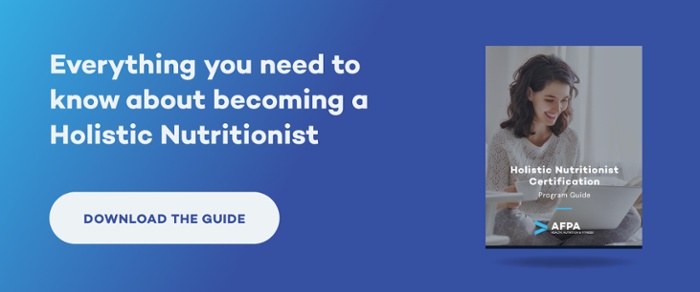Editor’s Note: This post was originally published August 10, 2016 and has recently been updated and revised for accuracy and comprehensiveness.
Numerous bloggers and food writers dispense nutritional advice with ease, and some don’t even cite any particular studies or research, they just seem to be coming up with these “insights” on their own. But for those who want to offer nutritional advice on a more professional basis, it’s crucial to understand that advice must be delivered in a way that’s credible, correct, and legal.
For example, a blogger in North Carolina who advocates a Paleo diet was free to write about his opinions online, but when he began to charge a fee for a nutritional coaching service, the state shut him down. Like nearly every state, North Carolina has laws that regulate how people can offer nutrition advice. If you’re looking to share your insights, be sure that you’re on the right side of the law with these strategies on how to give nutrition advice legally:
Become a Certified Holistic Nutritionist Online in 6 Months or Less
1. Earn a Certification
Having credentials is important for establishing that you’ve studied nutrition and have the latest knowledge and education needed for effective consultation. With a nutrition certification, you can provide evidence-based (instead of opinion-based) advice, do one-on-one coaching, lead workshops, and write about nutrition. You can legally consult with clients who are trying to achieve optimal health through better food choices.
2. Give Advice, Not Treatment
Even with a certification, it’s important to communicate health information in a way that’s appropriate. Only physicians and registered dietitians can provide medical nutritional therapy. You can give advice on nutritional steps to take, like incorporating more vegetables and lean proteins, and you can provide recipes, suggestions for meal plans, and ways to change their meals and snacks. You can even suggest supplements like fish oil or probiotics if you think they’ll be helpful.
But you can’t “prescribe” those supplements or talk about your suggestions in a way that implies you’ll be treating a specific issue. So, although you can give advice on a “heart-healthy diet,” you can’t say that you’ll be treating a client’s cardiovascular disease through nutrition. To give nutrition advice legally, stay away from words like: prescribe, treat, diagnose, and cure.3. Know Your State Laws
As the case in North Carolina showed, there can be strict laws in some states. But others are more lenient. For example, in Minnesota, it’s legal for professionals in a wide array of professions — including chiropractors, fitness trainers, acupuncturists, and herbalists — to give nutrition advice. The state does caution that there may be limitations on insurance reimbursement eligibility when seeing these types of professionals for nutrition plans.
Before you begin practicing and taking on clients, be sure to review the latest laws in your state since they can change without much public notice. Also, by paying attention to proposed laws, you may be able to support beneficial changes for the profession by contacting your legislators.




